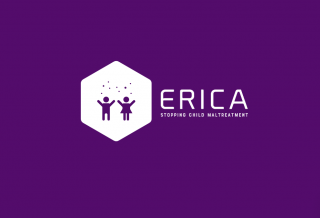Background
According to the latest report of Unicef (2017), almost 300 million children aged 2-4 experience physical maltreatment, harsh discipline and other forms of parental maltreatment within their families. In Europe, they are estimated to total about 80 million. The ERICA training programme will address issues of agency non-collaboration, seek locally defined and monitored solutions for these problems, whilst training agencies in state of the art detection and management of child maltreatment within a family.
Inter-organisational disconnection and lack of adequate consultation and collaboration between agencies in addressing the needs of children at risk of or subject to violence is a great issue. We also need reliable evidence-based identification tools for preventing maltreatment. A recent review of research (Paavilainen & Flinck 2015) concluded that instruments for identifying signs of maltreatment or maltreatment risk have a strong evidence base. E.g. in Finland we have promising results from validating and clinical testing of BriefCAP (Brief Child Abuse Potential Instrument) with which it is possible to find children living with child maltreatment risk within their family (Ellonen et al 2017, Lepistö et al 2017). Our project will also enhance and develop EU and global social protection of minors and families, by collecting, integrating and piloting best practices and risk assessment tools for pan-EU use.
Goal
is to prevent and combat violence towards children, defined as here as maltreatment, by building the expertise of professionals concerning minors living in families with child maltreatment risk, also in multicultural contexts
Detailed aims are
1. for professionals to undertake a comprehensive training program to enhance their use of risk assessment tools and their engagement in multiprofessional working practices,
2. to integrate a strategy which involves the civil society in the prevention of child maltreatment
3. to develop, pilot and evaluate an EU training program
4. to develop and evaluate a mobile application on risk assessment (professionals, parents)
Impact
ERICA project is expected to have the following long-term results:
1. increases knowledge on preventing and combating gender-based violence and violence against children
2. identifies risk situations of child maltreatment, builds protective factors, signposts cases and addresses them
3. shares good practices for programmes tackling child maltreatment, including strategies to engage the local community
4. provides free online training with EU scope for professionals from all member states
5. develops multiprofessional risk assessment tool by creating Risk Assessment Application
6. develops skills of professionals from different sectors to prevent and address child maltreatment and child maltreatment risk
7. creates community partnerships to promote safe, stable, and nurturing environments for children, youth and families
8. fosters recognition of child maltreatment risk and quicker activation of the care pathway
9. reduces the risk of child maltreatment and of cases of violence towards children and young people
Funding
ERICA project is funded by the European Union’s Rights, Equality and Citizenship Programme (2014-2020).
Partners and co-operators
There are 8 partners involved. The Tampere University is the main coordinator of the project. Other 8 partners, from six European countries, have different roles.
Tampere University (FI)
Oxford Brookes University (UK)
The Maria Grzegorzewska University (PL)
University of St Andrews (UK)
Mason Blanche, Psychiatrie & Neuroscieces (FR)
University of Essen (DE)
University of Milano Bicocca (IT)
SYNERGIA (IT)
Collaborator
Enter Mental Health
European Network on Training, Evaluation & Research in Mental Health
https://www.entermentalhealth.net/


